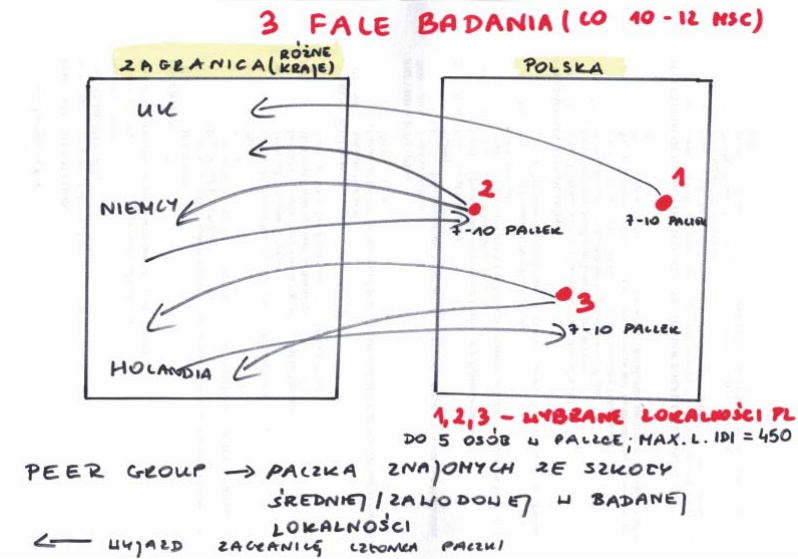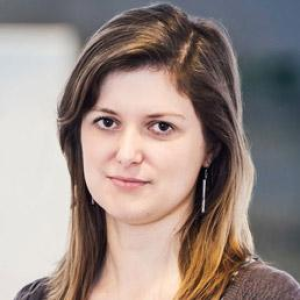
finished
Peer Groups and Migration

principal investigator / project leader
sociologist and economist, specializing in employment market and migration
project value: PLN 884,400
funding source: National Science Center
discipline: sociology
location: Warsaw
duration: 2016 2017 2018 2019 2020
The school-to-work transition is not a one-time event in the lives of young people. Rather, it is a phase that may last a few years and may include several career changes. It is also a time, when young people typically decide on the future direction of their lives. After the accession of Poland to the European Union in May 2004, one in three young people from rural areas and small towns have decided to look for their first job outside of Poland. The researchers from SWPS University will be monitoring this process, through the lens of Peer Groups, i.e. groups of close friends. The participants of the study will include people who left their home towns to look for work in other cities in Poland and abroad, and also those that have stayed in their local communities.
research project
Peer Groups AND MIGRATION
Education-to-domestic and- foreign labour market transitions of youth: The role of locality, peer group and new media
Research Unit

Grant Amount884 400 PLN
Funding Source

Duration of Research Project: 2016-2020
The school-to-work transition is not a one-time event in the lives of young people. Rather, it is a phase that may last a few years and may include several career changes. It is also a time, when young people typically decide on the future direction of their lives. After the accession of Poland to the European Union in May 2004, one in three young people from rural areas and small towns have decided to look for their first job outside of Poland. The researchers from SWPS University will be monitoring this process, through the lens of Peer Groups, i.e. groups of close friends. The participants of the study will include people who left their home towns to look for work in other cities in Poland and abroad, and also those that have stayed in their local communities.
Research Objectives
Goals
1) To explore the role of home town and local community (locality) in the school-to-work transitions, on the domestic and foreign labour market, in reference to young men and women.
2) To investigate the role of parents and relatives in school-to-work transition, on the domestic and foreign labour market, in reference to young men and women;
3) To study the role of a peer group in school-to-work transitions, on the domestic and foreign labour market, in reference to young men and women;
4) To explore the role of new media and online social networks in the school-to-work transition, on domestic and foreign labour market, in reference to young men and women;
5) To investigate whether young people use the knowledge acquired in educational institutions on the labor market and how they apply the experience gained while working abroad, after returning to Poland.
What Do We Already Know
The school-to-work transition is not a one-time event in the lives of young people. Rather, it is a phase that may last a few years and include several career changes. It is also a time, when young people typically decide on the future direction of their lives.
After the accession of Poland to the European Union in May 2004, one in three young people from rural areas and small towns have decided to look for their first job outside of Poland. Young people have declared financial reasons as the main cause of leaving their home towns. However, further research has also shown other motivation for migration, including a desire to leave the family home, mustering courage to become independent, the matter of self-confidence, and taking responsibility of their own lives.
Additionally, young people have mentioned a wish to change their lifestyle, to start fresh in a new group of people, which was often defined as a multicultural city that offers anonymity. For them migration is also an escape from the socially imposed traditional life path: school-career-marriage-children-mortgage.
Methodology
The core of the project is a peer group mapped and selected in localities in Poland with different social and economic backgrounds, such as: migration history, post-communism transition, local labour market etc.

The project assumes cyclical interviews with the peer groups, every 12 months, to find out what has changed in their lives, what are their attitudes towards various issues, and how they behave on the job market. The researchers plan to conduct approximately 320 in-depth interviews with young people.
The researchers will also conduct an analysis of social media, mainly Facebook, blogs, and online job boards, and their impact on employment of young people.
Additionally, during the project, the researcher will take a social context photograph of the study participants’ home towns. The map will include observatons of places where the young people socialize, conversations with parents, teachers, and school and job center career counselors.
Assistance for Study Participants
Free coaching
In the periods between the main stages of the project, the participants of the study will have an opportunity to attend free, virtual or in-person, coaching sessions with career coaches from SWPS University.
Collaboration with Youth Research Lab
The project offers an opportunity to collaborate with the Youth Research LAB at SWPS University. The participants of the study may join Youth Advisory Boards, which support research projects conducted by the LAB.
Research Team

Pustułka, Paulina
Specialization
sociologist
First and last name
Paulina Pustułka
Academic degree or title
Ph.D. / Associate Professor
Email
This email address is being protected from spambots. You need JavaScript enabled to view it.
Position
profesor uczelni
Role in the Institute
{"funkcja-w-instytucie0":{"Funkcja":"","\u0141\u0105cznik":"","Nazwa w mianowniku":"Institute of Social Sciences"}}
Role in the Research Center
{"funkcja-w-centrum0":{"Funkcja":"Head","\u0141\u0105cznik":"of the","Nazwa w mianowniku":"Youth Research Center"}}
Institute
Institute of Social Sciences
Role in the Faculty
{"funkcja-na-wydziale0":{"Funkcja":"","\u0141\u0105cznik":"","Nazwa w mianowniku":"Faculty of Social Sciences in Warsaw"}}
Role in the Department
{"funkcja-w-katedrze0":{"Funkcja":"","\u0141\u0105cznik":"","Nazwa w mianowniku":"Department of Sociology"}}
Ph.D. / Associate Professor Paulina PustułkaSociologist. Head of the Youth Research Center.

Juchniewicz, Natalia
Specialization
sociologist
First and last name
Natalia Juchniewicz
Academic degree or title
Ph.D.
Ph.D. Natalia Juchniewiczsociologist

Buler, Marta
Specialization
Sociologist
First and last name
Marta Buler
Academic degree or title
Ph.D.
Email
This email address is being protected from spambots. You need JavaScript enabled to view it.
Ph.D. Marta Bulersociologist

Izabela Mleczko
Student Ahssistant, Methodological Scientific Advisor

Bren Neale
Professor of Life course and Family Research, University of Leeds, Conceptual Scientific Advisor

Anne White
Professor of Polish Studies and Social and Political Science, University College London, School of Slavonic and East European Studies